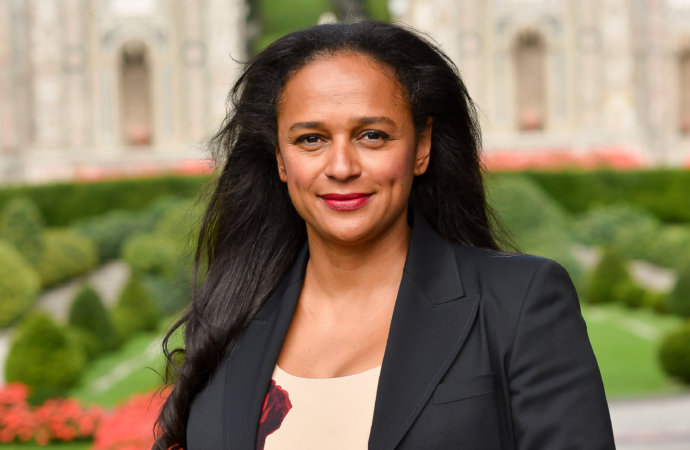ROAD TOWN, Tortola, BVI — The High Court of the British Virgin Islands has enforced a $646 million award against a company owned by beleaguered Angolan billionaire Isabel dos Santos, finding that the ICC Court was right to appoint all five members of the arbitration tribunal itself.
The decision affects a prominent African mobile phone operator, involving dos Santos, who is the richest woman on the continent of Africa.
A five-member tribunal of the ICC International Court of Arbitration (ICC), based in Paris, ruled in favor of PT Ventures, in a shareholder dispute concerning Unitel, one of Africa’s largest mobile phone operators.
The shareholder dispute, which forced the freezing order litigation in the British Virgin Islands and the Eastern Caribbean Supreme Court, saw PT Ventures, a Portuguese telecoms company, which is majority owned by Brazilian telecommunications giant Oi, bring proceedings under an arbitration agreement, seated in Paris.
According to court documents, Oi, which inherited its minority stake in Unitel in 2014, had claimed over $3 billion from the Angolan shareholders of Unitel.
This was the British Virgin Islands-registered Vidatel, owned by billionaire Isabel dos Santos; Angolan-based Geni, owned by Angolan general and businessman Leo ‘Dino’ do Nacimiento, a close associate of late former president and Isabel dos Santos’ father, José Eduardo dos Santos; and Angolan telco Mercury, which is owned by Sonangol, the Angolan state oil company, of which Isabel dos Santos was formerly the chairwoman, until the 2017 election signaled regime change in Angola.
Dos Santos has attracted considerable local attention, following allegations of misconduct by her successor as chairman of Sonangol, which she has denied.
Investigations have been opened by Angolan prosecutors into alleged corruption offences, with tackling alleged graft a prominent theme of government, following the election of President João Lourenço, allegations which dos Santos denies.
Some commentators in local and African media have been heavily critical of Unitel. Both the litigation and arbitration, were keenly followed in Angola, while the corporate governance of the firm, in the form of appointments to the board, remains a live issue.
Unitel’s majority shareholders strongly opposed the proceedings, telling local media at the launch of the claim that it totally refuted “all claims alleged by PT Ventures” and would “vigorously present its defence against these unfounded and defamatory claims”.
The case, unusually, was heard by a tribunal of five arbitrators, the first time the ICC has constituted such a panel, led by president, Germany’s Klaus Sachs, alongside Belgian lawyer, Bernard Hanotiau of Hanotiau & Van den Berg, Spain’s David Arias, FCDG’s Marcelo Roberto Ferro of Brazil and Fountain Court Chambers’Italian arbitrator Luca Radicati di Brozolo.
In many ways, the case represents a triumph for the ICC, being both neutrally seated and able to field a panel of distinguished arbitrators, where neither side would have been keen to have the dispute heard judicially in Angola, Portugal or Brazil, and in which the jurisdiction of the claim, once tested offshore, was not further contested. Nor was the scale of the dispute beyond the ICC’s administration, or the means of the parties.
The 500-page final award, handed down last month, held that the other shareholders’ obligations to PT Ventures had been repeatedly breached, heavily decreasing the value of the company’s stake in Unitel, while the remaining three shareholders – who should have paid certain dividends to PT Ventures, failed to do so. The award also dismissed a counterclaim against the claimants.
The company will get $646 million, while retaining its shareholding, with approximately $340 million awarded as a consequence of the violations of the shareholder agreement, and approximately $315 million due for non-payment of dividends since 2012, while costs in the cause were awarded to the tune of $12 million.
Although the sum sought was less than originally claimed, PT Ventures told local media it was satisfied with the result. Angola ratified the New York Convention in 2016, making enforcement proceedings easier as a result.
New York-headquartered law firm White & Case team represented PT Ventures, its team led by Paris-based partners John Willems, Christophe von Krause, and London’s John Rogerson, together with a large team of Paris and London based associates.
Vidatel, owned by dos Santos, was represented by Portuguese firm PLMJ and Spanish firm, Uría Menéndez in Lisbon and Madrid, in substitution, from 2015 onwards, for Quinn Emanuel Urquhart & Sullivan, led by Philipe Pinsolle.
Mercury was represented by Portuguese firm Morais Leitão, Galvão Teles, Soares da Silva & Associados. Geni used another Lisbon firm, Lino de Castro, Horta e Costa & Associados.
Maples & Calder acted for PT Ventures in the offshore proceedings, while Conyers Dill & Perlman acted for the remaining shareholders, together with Alain Choo Choy QC of One Essex Court.



